Is a long tradition of religious coexistence at risk from the rise of a strain of Islam openly hostile to other faiths?
Vladimir Karaj :: Gurras, Kuqan, Pristina and Bern, 10 Dec. 2015
 A statue of Mother Teresa of Calcutta, who was of Albanian origin, in front of the Grand Mosque in the town of Scutari, northern Albania. Photo: Vladimir Karaj
A statue of Mother Teresa of Calcutta, who was of Albanian origin, in front of the Grand Mosque in the town of Scutari, northern Albania. Photo: Vladimir Karaj
In the village of Gurras, near Albania’s border with Macedonia, the Goroveci family lives in an old one-storey house filled with potted plants. The house is surrounded by grapevines, cultivated by the family to produce wine and raki, the clear spirit common across the Balkans.
The Gorovecis describe themselves as Muslims, although only one of them fasts during Ramadan. One of their daughters-in-law, Polieda, is an Orthodox Christian but they have welcomed her warmly into their family.
“We celebrate Easter and Christmas with the in-laws and they return our visits for Eid,” says Nevres Goroveci, the 52-year-old mother of two sons, sitting in the garden on a sunny day. To prove the point, she fetches three hard-boiled, coloured Easter eggs, two of them green and one red. Polieda’s family gave her the eggs last Easter and tradition says that she should hold onto them until the same festival next year.
It is not unusual in Albania for members of the same family to follow different faiths, and for them to celebrate each other’s religious festivals. This reflects a long tradition of religious coexistence in a country that has a Muslim majority but also sizeable populations of Orthodox Christians and Roman Catholics.
That tradition is one reason why Pope Francis chose Albania for his first European trip outside Italy in September 2014. He described religious tolerance in Albania as “a treasure” to be protected and held a Sunday mass in front of 300,000 people, many of them Muslims.
 Nevres Goroveci outside her home in the village of Gurras, with Easter eggs given to her by the parents of her daughter-in-law. Photo: Vladimir Karaj
Nevres Goroveci outside her home in the village of Gurras, with Easter eggs given to her by the parents of her daughter-in-law. Photo: Vladimir Karaj
Another sign of the good relations between religions came in January this year. Four senior clerics from Albania’s main faiths — Sunni Muslims, Catholics, Orthodox Christians and Bektashis, an Islamic mystical movement — walked arm in arm at the memorial march in Paris after the attacks on the satirical magazine Charlie Hebdo.
But this tradition of coexistence faces a challenge from the rise of an intolerant strain of Islam among a minority of Albanians, which has even resulted in some travelling to Syria and Iraq to fight for ISIS, the Islamist militant group that controls parts of both countries.
So far, the tensions raised by radicalisation in Albania have been confined to vitriolic online debates, with some Albanians condemning any display of Muslim identity and others accusing them of not understanding the Islamic faith.
But analysts warn that unless Albania tackles intolerant rhetoric on all sides, it could lead to greater polarisation.
“Focusing only on the extremist segments inside the Muslim community deflects public attention from the constantly rising phenomenon of Islamophobia,” said Elton Hatibi, a scholar of religious history and culture.
Besnik Sinani, another scholar and writer on religion, says religious tolerance is not “something static” but needs regular attention if it is to be maintained. He says Albania needs to create “a new vision of mutual respect between religious communities”.
‘Breaking the teeth of the infidels’
Investigators suspect that four adults from the Goroveci family’s village of Gurras went to the area controlled by ISIS, including a husband and wife who took their three children, according to a police report for prosecutors marked “secret”.
The document says another of the adults was Nevres Goroveci’s younger son, Taulant, a 28-year-old unemployed economics graduate. He denies belonging to ISIS, says he never went to Syria and complains about being monitored by the police.
“Under my name in the police computer system,’dangerous’ iswritten in red,” he says with a sneer while caressing his beard with his fingertips.
Faith in Statistics?
Until well into the 21st century, a census from way back in 1923 was the shaky basis for statistics about Albanians’ religious beliefs. But even surveys conducted in the past few years have failed to settle debates about the size of different religious denominations.
The 1923 census found that 68.6 per cent of the population were Muslims, 21 per cent were Orthodox Christians and 10.4 per cent were Catholics. (Bektashis, an Islamic mystical movement, were included in the Muslim total rather than regarded as a distinct religious group at that time.)
The 1923 census had many limitations, as the non-governmental organisation open.data.al notes in an analysis . It accepted only a few categories of religious affiliation, meaning other denominations known to exist in Albania at that time were not counted. Albanians also viewed religion differently in those days. Under the Ottoman Empire, whose long rule over Albania had come to an end just a decade earlier, religion affiliation had legal implications. Christians had different obligations from Muslims in terms of taxes and military service, for example.
However, the statistics endured for many decades — in large part because the communist dictatorship that ruled after World War Two had no interest in measuring the strength of religious groups. It banned religious practice and declared Albania the world’s first atheist state. Religions were permitted again from November 1990 as the regime crumbled but only in 2011 was a question on religion included in the national census, producing some surprising results.
The census found Muslims made up 56.7 per cent of the population, with Bektashis accounting for a further 2.1 per cent. The overall Muslim total of 58.9 per cent was nearly 10 percentage points lower than in the 1923 census. Orthodox Christians were found to make up 6.7 per cent of the population — a figure more than 14 points lower than in 1923. Catholics were the only major group whose strength seemed to have remained constant at around 10 per cent. About 5.5 per cent of people said they were believers without any denomination and 13.7 per cent did not answer the question.
Only 2.5 per cent declared themselves to be atheist — a figure many expected to be much higher after decades of communism.
Various religious groups complained about how the census had been carried out. The Orthodox church declared the results “totally incorrect and unacceptable”. In a survey of its followers in December 2012, the church reported, more than 65 per cent said they had not been visited by census interviewers or had not been asked about religion. The church claims its followers represent 24 per cent of the population.
To add to the confusion and controversy, a survey conducted for an academic project by research firm Ipsos [pdf link] in the same year as the census produced different results. It found that 59.2 per cent of Albanians described themselves as Muslims, with a further 7.7 per cent saying they were Bektashis and 0.7 per cent identifying as Shiites. Just over 17 per cent of people defined themselves as Orthodox Christians and 5.7 per cent said they were Catholics.
Neither the census nor the Ipsos survey provides any information about the number of marriages between people of different religions.
Sources: open.data.al, Albania’s Institute of Statistics (INSTAT), Ipsos
Taulant says he spent a week in the Turkish city of Adana — about 120 km from the Syrian border — just to get some work, which he does not describe. But he speaks in support of the so-called caliphate declared by ISIS in Syria and Iraq.
“The caliphate is good thing for people of Muslim faith to live in,” he says, sitting at the Dante Pizzeria in the village of Tushemisht on the shores of Lake Ohrid, a bike ride away from his family home.
Asked about ISIS’s horrific execution of a Jordanian air force pilot, burned to death in a cage early in 2015, Taulant says the pilot “hadn’t exactly been throwing candy”.
The investigation that identified Taulant and others as ISIS sympathisers concluded that some 90 Albanians, including more than 20 minors, had travelled to Syria. At least 13 of them have died in the war there.
As part of the investigation, in March 2014 the Serious Crimes Court in Tirana ordered the arrest of 13 people, including two self-proclaimed imams, Bujar Hysa and Genci Balla, accused of recruiting dozens of jihadists to fight in Syria.
According to the indictment against him, Hysa said in a secretly recorded sermon on February 21, 2014: “The day will come in this world very soon, Allah permitting … to break the teeth of the infidels, who have oppressed us too much.”
Such rhetoric is a relatively recent phenomenon in Albania, where Muslims have traditionally followed a mild and tolerant brand of Islam. Religious identity in Albania has also long been considered secondary to national identity. This is in marked contrast to some other Balkan states where religion and national identity have been closely intertwined.
“The dominant discourse of Albanian nationalism has downplayed the place of religion in Albanian society,” says Nathalie Clayer, a professor at the School for Advanced Studies in Social Sciences in Paris who is an expert on Albanian history.
In the mid-nineteenth century, the founding fathers of Albanian nationalism sought to build a society centred on ethnicity and language, even though there were clerics in their ranks.
One of the main figures in this movement was Pashko Vasa, who wrote one of the first novels with an Albanian theme, Bardha of Temal, about a tragic love affair between a Muslim woman and a Catholic man in the city of Shkodra during the Ottoman era.
A Catholic from Shkodra who served as Ottoman governor of Lebanon, Vasa also wrote a line in a poem that has become a cliché: “The religion of Albanians is Albanianism”. The phrase sums up the notion that Albanian identity is primarily about the nation itself.
The suspects arrested in 2014 do not hide their hatred of this idea. In one of his recorded sermons, Bujar Hysa fiercely attacks “infidel” Albanians. “They have instilled the spirit of nationalism in imams,” he complains.
Hoxha bans religion
After World War Two, under Enver Hoxha’s communist-nationalist dictatorship, Albania moved from religious coexistence to harsh suppression of all faiths.
Although his last name translates as religious leader or teacher, Hoxha turnedAlbania into the world’s first officially atheist country. All religious practice was banned. Dozens of clerics from each of the main faiths were executed or died in internment camps.
Thousands of churches and mosques were razed to the ground and the property of religious groups was seized by the state. Only 77 religious buildings were preserved on cultural heritage grounds, according to a typewritten list submitted in 1967 by the then-culture minister to the Party of Labour’s central committee.
 A report on “the first results in the war against religion” submitted in 1967 by the Secretary for Education to the Party of Labour’s central committee. Photo supplied by Admirina Peci
A report on “the first results in the war against religion” submitted in 1967 by the Secretary for Education to the Party of Labour’s central committee. Photo supplied by Admirina Peci
Ylli Gurra, the mufti of Tirana, who hails from a line of imams going back seven generations, recalls that the Sigurimi, the secret police, kept a close watch on his family under communism. A Sigurimi informant would hide in a barn under their home to see if they woke up for a pre-dawn meal during Ramadan.
Clayer, the author of a book on the origins of Albanian nationalism, says one long-term legacy of Hoxha’s regime was an increase in the secularisation of Albanian society.
Yet, despite its brutality, the communist dictatorship did not eradicate faith among Albanians.
A survey conducted for an academic project by the research firm Ipsos in 2011 found that almost 90 per cent of Albanians believed in God.
“So, if one uses ‘belief in God’ as a criterion, Albania is one of the most religious nations in Europe,” says Cecilie Endresen, a researcher at the University of Oslo and author of a book on religion and national identity in Albania.
However, the same survey showed that only about 7 per cent of Albanians attend religious services at least once a week.
Endresen sees the clear division in Albania between religion on the one hand and politics and the state on the other as one reason why the country has not been blighted by religious conflicts.
Mixed Marriages
About eight kilometres from the city of Elbasan, Kuqan is a village of many faiths where marriages between Muslims and Orthodox Christians have become common.
Sitting at a table in the bar she owns, Irena Sota, a middle-aged Orthodox woman, says she has no concerns about the fact that her son will soon marry a Muslim.
“We didn’t grow up with religion,” she says, referring to the long atheist period under communism.
“At Easter they would check at school if your hands were painted red to discover the families that still celebrated it,” she recalls. Sota says her family would break up the coloured eggshells into small pieces and hide them in chimney ash.
She adds that she believes primarily in God rather than in any particular religious practice.
However, Bujar Sulomina, a local wedding photographer, recalls that intermarriage was not always straightforward. In the communist era, his aunt ran away from home to marry an Orthodox man because her Muslim father did not approve of the union.
“Those were nuptials by kidnapping,” he says, using a traditional phrase for elopements.
There is no such drama in the family these days.
The aunt who rebelled against the Muslim father became a devout Muslim who made the Hajj pilgrimage to Mecca. One of Sulomina’s sisters is a Muslim who prays five times a day. His mother and wife have converted from Islam to become Jehovah’s Witnesses. Sulomina himself expresses sympathy with Jehovah’s Witnesses but does not feel part of any organised religious group.
“We have to set aside something of our religion for our neighbours,”
– Mustafa Memeti, ethnic Albanian imam in Switzerland
Seran Braho, an 84-year-old Muslim, says he is proud of his three sons’ interfaith marriages to Christian women from the same village. One of his sons had his children baptised into their mother’s faith in Greece — and invited an imam along to the lunch after the ceremony, leaving the Greek priest “deeply puzzled”.
Braho’s friend, Trifon Ranxha, an Orthodox Christian aged 54 who joins him for coffee and raki in the afternoons, says one of his daughters is married to a Muslim and he is happy for her. “We are all one and have only one God,” he says.
 Seran Braho, an 84-year-old Muslim, and his friend Trifon Ranxha, a 54-year-old Orthodox Christian, at a bar in the village of Kuqan. Photo: Vladimir Karaj
Seran Braho, an 84-year-old Muslim, and his friend Trifon Ranxha, a 54-year-old Orthodox Christian, at a bar in the village of Kuqan. Photo: Vladimir Karaj
‘Crypto-Christians’ and Kosovo
Under the Ottoman Empire, both Albania and neighbouring Kosovo witnessed a phenomenon that shows how complex religious identity in the region can be. Some people, known as “crypto-Christians”, declared themselves to be Muslim — which brought benefits such as lower taxes — but continued to observe Catholic rituals in secret.
In recent years, some members of Kosovo’s small community of crypto-Catholics have felt confident enough to embrace the Christian faith publicly.
The Catholic Church’s profile has grown lately, not least through the construction of a towering cathedral in the capital, Pristina.
But Albert Jakaj, a priest, says some Catholics in Kosovo still prefer to keep their faith secret.
“Maybe even their cousins don’t know that they light candles and colour eggs,” Jakaj says, sitting in a restaurant on the outskirts of the town of Ferizaj.
He believes these people are not open about their faith mainly because they fear Muslim families will not let their daughters marry Catholics. Jakaj says the Catholic Church has accepted them as parishioners and respects their decision.
“It’s a modus vivendi for them,” Jakaj says.
 Albert Jakaj, a Roman Catholic priest Kosovo, just outside the city of Ferizaj. Photo: Vladimir Karaj
Albert Jakaj, a Roman Catholic priest Kosovo, just outside the city of Ferizaj. Photo: Vladimir Karaj
Alma Lama, a member of Kosovo’s parliament, believes there is more religious tolerance in her native Albania than in Kosovo, where she has lived since 1999.
Lama became the target of a campaign of online abuse in Kosovo after criticising an imam in 2013 for calling women who have premarital sex “used spoons”, among other derogatory terms, and telling his followers not to marry them.
Religion in Kosovo
The 2011 census in Kosovo found that 95 per cent of people were Muslims, just over 2 per cent were Roman Catholics and 1.5 per cent were Orthodox Christians. However, the true number of Orthodox Christians is higher, as members of Kosovo’s Serb minority, who are overwhelmingly Orthodox, boycotted the census.
She believes radical Islam is finding fertile ground in Kosovo and says the authorities are doing too little to stop it. More than 200 fighters from Kosovo have reportedly joined the ranks of Islamist militants in Syria and Iraq.
But Lama herself has been accused of religious intolerance. She became involved in a heated public spat with an Islamic youth group, the Forum of Young Muslims, over some of her comments about Islam, which resulted in each suing the other for inciting religious hatred.
Meanwhile, the Islamic Community of Kosovo, ICK, which oversees the country’s mosques, says that it is doing what it can to stop young people from becoming radicalised, despite its limited resources.
ICK official Ahmet Sadriu also stresses that radicalism is a worldwide problem and not only present in Kosovo.
Although they represent different faiths, Sadriu and Jakaj declare that Albanians in both Albania and Kosovo share a tradition of religious coexistence going back centuries.
“We are all brothers,” Jakaj says. Sadriu declares that “religious communities in Kosovo, but also in Albania, have no problems with each other — and have never had.”
That statement, however, certainly does not apply to relations between Muslim Albanians and Orthodox Christian Serbs in Kosovo, which have long been marked by conflict.
This year, the Serbian Orthodox Church played a prominent role in the diplomatic campaign that stopped Kosovo from joining the UN cultural body, UNESCO.
Switzerland’s ‘Man of the Year’
Mustafa Memeti, an ethnic Albanian imam, is working hard to promote religious tolerance — a couple of thousand kilometres northwest of the Balkans, in Switzerland.
The country facesits own problems with radicalised Muslims, many of them from migrant backgrounds.
 Mustafa Memeti, an imam in the Swiss capital Bern, leading prayers. Photo: Vaxhid Memeti
Mustafa Memeti, an imam in the Swiss capital Bern, leading prayers. Photo: Vaxhid Memeti
More than 70 people have left Switzerland for the jihad cause since 2001, according to a Swiss Intelligence Service report from October 2015. Fifty-seven went to Iraq and Syria while 14 travelled to Somalia, Afghanistan or Pakistan, the agency said. Thirteen of these jihadists are believed to have died.
Memeti, who is originally from the Presevo Valley in southern Serbia, was proclaimed “Swiss of the Year” by the newspaper Sonntagszeitung, for speaking out against radicalism and for taking part in the “House of Religions” project in Bern, where he preaches that Muslims can coexist with people of other beliefs under one roof.
His mosque is one of eight rooms for different faiths inside the modern, glass-fronted building. Memeti, who became a Swiss citizen in 2005, says people of all faiths must be willing to compromise to live together.
“We have to set aside something of our religion for our neighbours,” he says.
He sounds the alarm over the attitude of official Muslim communities in Albania, Kosovo and Macedonia, which be believes have been too accommodating to hardline strains of Islam.
“The conservatives have found a safe haven under the umbrella of these institutions,” he says.
He declares it is the job theologians like himself “never to allow massacres to happen in the name of faith, God or an ideology, because they have nothing to do with God”.
Vladimir Karaj is an editor at the Albanian newspaper Mapo. This article was produced as part of the Balkan Fellowship for Journalistic Excellence, supported by the ERSTE Foundation and Open Society Foundations, in cooperation with the Balkan Investigative Reporting Network.
Source: Balkan Insight
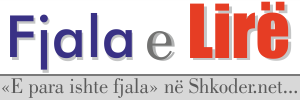


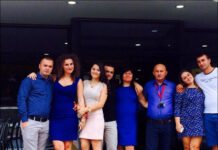
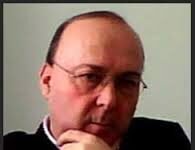

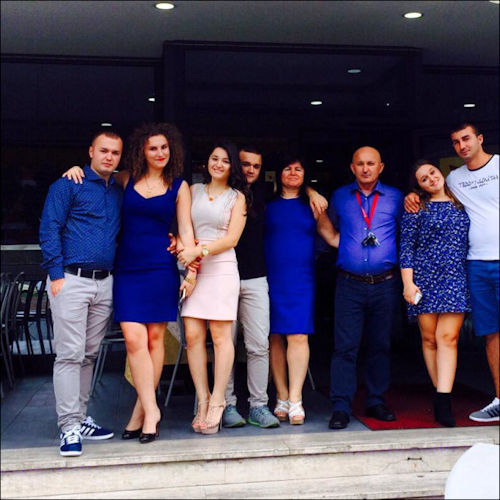
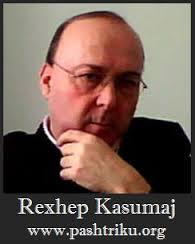
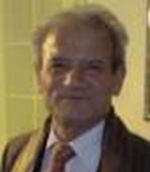

FEJA NË SHQIPËRI
(statistikës nuk i dihet burimi dhe mbledhja nuk del 100%)
Comments are closed.